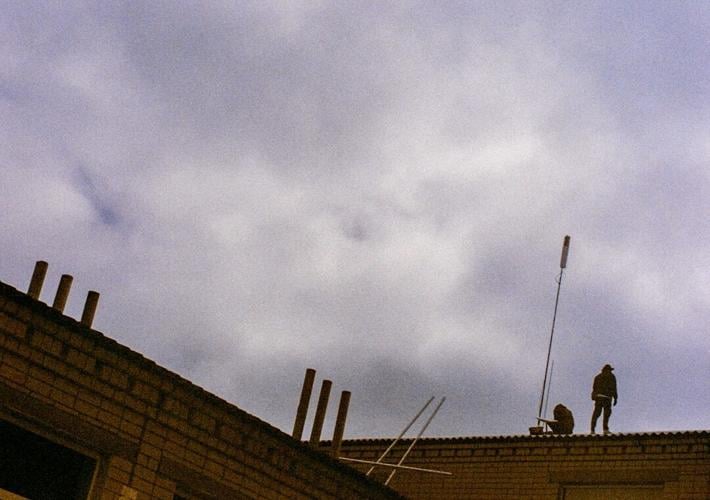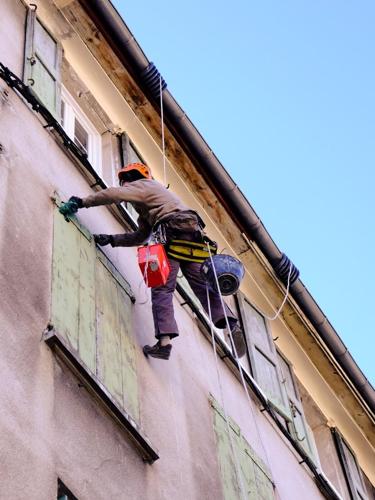Your home's temperature setup, encompassing both the heating and cooling systems, is a necessary part of a comfortable living environment throughout the year. Know that these systems can become less efficient due to age, wear, or unexpected breakdowns.
Deciding whether to repair or replace your HVAC system can impact your comfort and finances, so understand the indicators for each option. For homeowners, knowing when to take action can be challenging. Here we’ll explore various factors that can guide your decision-making process.

Knowing Typical HVAC Lifespan
Most heating, ventilation, and air conditioning (HVAC) systems have a finite lifespan, ranging from 10 to 20 years. Older systems are prone to more frequent issues, which may lead to expensive repairs. When considering your temperature control setup’s lifespan, regular maintenance can prolong its usability by several years. If your system is close to or exceeds its expected lifespan and frequently breaks down, it might be time to evaluate your options more critically.
More often than not, repairing an older system is a temporary fix. Leakages, inefficiency, or strange noises can escalate and even result in higher energy consumption. Consulting with professionals can provide valuable insights into whether your current unit merits repair or replacement.
Consulting Professionals
The most reliable method to navigate repair or replacement decisions is through professional evaluation. Look into trusted HVAC technicians who can carry out comprehensive system assessments to provide tailored recommendations based on specific needs. They may identify issues you might overlook, providing clarity on the system’s current state and efficacy.
The right professional offers important insights into available technology, energy savings, and modern solutions reflecting your comfort preferences. Seeking a second opinion or interviewing multiple contractors can deliver different perspectives so that you make an informed decision based on clear insights.
Signs of Inefficiency
Inconsistent temperature distribution is a common indicator that something might be wrong with your HVAC unit. If some rooms are stuffy while others remain cold, it suggests that the system struggles to regulate airflow effectively. This inefficiency can stem from a poorly sized system, dirty filters, or malfunctioning components.
Paying attention to dramatic energy bills can point toward inefficiency. If costs rise without a significant change in usage, it’s a red flag suggesting your system may not function optimally. In this case, conducting a system performance check or having routine maintenance can provide clarity. Repairs may resolve minor issues, but underlying problems might lead you down the path of replacement if inefficiency becomes a routine issue.
Repair Costs vs. Replacement Costs
When faced with a malfunctioning HVAC system, weigh the costs of repair against the price of a new system. Repairs can seem economical in the short term, but frequent repairs can accumulate in the long term. If a repair costs more than half the price of replacing the system, replacement is considered a more financially sound choice.
Keep in mind potential energy savings from newer, more efficient models. Energy-efficient systems can reduce monthly utility bills and may qualify for rebates and offset the initial investment. Evaluating your financial situation and how long you plan to stay in your current home can influence this decision. A proper assessment of these costs, including long-term savings and potential homeowner incentives, can further guide your choice.
Environmental Factors in Decision Making
With increasing awareness of environmental issues, many homeowners are opting for energy-efficient systems when considering replacements. An outdated HVAC system contributes to higher carbon emissions due to its inefficiency. Newer models, such as those featuring SEER ratings (Seasonal Energy Efficiency Ratio) that exceed 14, can substantially reduce energy consumption and carbon footprint.
Sustainable HVAC technologies like heat pumps or geothermal systems are gaining popularity due to environmental benefits. Know that these systems can save up to 60% on energy usage compared to traditional heating and cooling methods. Choosing an energy-efficient model reflects a commitment to environmentally friendly practices and leads to significant long-term savings.
Effects of Repairs on Home Value
Understanding how repairs or replacements of HVAC systems can affect the value of your home. A well-maintained HVAC system improves property value, as prospective buyers seek homes with reliable and efficient heating and cooling solutions. A property with an outdated or poorly functioning HVAC system can deter potential buyers, leading them to perceive the home as a burden requiring immediate repairs and replacements.
Investing in a new system results in a higher return on investment (ROI), making it an attractive option for current homeowners. It speaks to comfort, safety, and efficiency, all important factors on any homebuyer’s checklist.
Frequency of Breakdowns
Frequent breakdowns can dictate whether repair or replacement is necessary. If you find yourself calling for repairs yearly or, even worse, multiple times within the same season, those frequent inconveniences reflect an unreliable system. Minor repairs can extend the life of an HVAC system, but there comes a point where repairs become counterproductive.
When evaluating whether to stick with your current unit, see how often breakdowns happen and whether repairs offer a long-term solution or merely a band-aid for an outdated system. Keeping detailed records of past repairs and their costs can help determine if replacement is the right path.
Seasonal Considerations
Timing your decision around seasons can amplify your comfort and savings. Spring or fall are ideal times to assess your HVAC system, allowing you to prepare before peak demand occurs. During these transitional periods, HVAC service providers might offer special promotions for replacements or service checks, presenting opportunities to save financially.
Navigating choices when the HVAC is on the brink of failure during sweltering summer or freezing winter months can complicate the decision. Being proactive in maintaining your system during milder weather can save both comfort and costs associated with emergency repairs.

Maintaining a functional and efficient HVAC system is a crucial aspect of home ownership. Weighing the options between repair and replacement requires careful consideration of various factors, including system lifespan, efficiency, associated costs, and seasonal timing. Monitoring your system for signs of failure and consulting with professionals will help you make a decision that aligns with both your comfort and financial needs.



(0) comments
We welcome your comments
Log In
Post a comment as Guest
Keep it Clean. Please avoid obscene, vulgar, lewd, racist or sexually-oriented language.
PLEASE TURN OFF YOUR CAPS LOCK.
Don't Threaten. Threats of harming another person will not be tolerated.
Be Truthful. Don't knowingly lie about anyone or anything.
Be Nice. No racism, sexism or any sort of -ism that is degrading to another person.
Be Proactive. Use the 'Report' link on each comment to let us know of abusive posts.
Share with Us. We'd love to hear eyewitness accounts, the history behind an article.